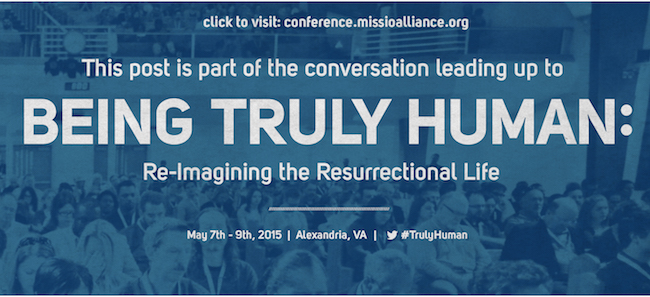Primped: Letting Our Hair Down as Leadership
To begin, it is of utmost importance to acknowledge that a distinct mark of a totalitarian regime is that its leader must rule every conceivable dimension and facet of their people’s day-to-day lives. Also, the leader must be a phenomenal golfer.
Case in point: North Korea. In modern-day North Korea, it’s required of each family that a picture of the “supreme leader” be placed in every house of the rooms in their residence. In the North Korea totalitarian world, the supreme leader must be everywhere—literally. Furthermore, the sacred public image of the supreme leader—or, at least, the perception that everyday people have about them—is of upmost importance; it must be constantly trimmed and groomed and managed. In North Korea, popular legend holds that their current leader, Kim Jung Un, has never and will never have to go to the bathroom. Another national lore is that Un can talk to dolphins. The groundwork for such radical public persona was laid by his father, Kim Jung Il, who—according to the seventeen security guards who were present—shot a perfect eighteen on eighteen holes of golf during the opening of the Pyongyang Golf Complex in the capital city.[1] That’s eleven holes-in-one on one round of golf. Local legend suggests it was Un’s first round of golf ever. In a less-than-serious tribute to the passing of a golfing great, ESPN writer DJ Gallo eulogizes Un’s loss:
What we do know is that no matter how many more majors Tiger Woods does or doesn’t win, the debate of Tiger vs. Jack is really an argument about who is the second-best golfer in history. More than his undisputed greatness on the course, it’s probably Kim’s simple approach to the game that will be his enduring legacy. While other great golfers have written books full of tips, tricks and swing thoughts, Kim had the best approach to conquering the sport of golf: Have your national propaganda department lie for you.[2]
The image of a totalitarian is always primped. It’s with great consequence, of course, that we come to the gospels and see a radically different, non-totalitarian, human, God. Jesus is anything but sub-human in the Bible. He is fully human. Even Jesus would have gone to the bathroom.
John’s gospel goes out of the way to deconstruct any notion that Jesus was the beginning of such a managed persona. For instance, in John 4 we find Jesus speaking to a Samaritan woman by the Sycharian well. There, Jesus is described as being tired, hungry, and thirsty. Such human depictions make one do a double take—particularly for one like myself who holds unswervingly to the divinity of Jesus Christ.
So we mustn’t forget the theological position of the New Testament about the Jesus who was God. Jesus was, “the exact representation of God.” (Heb. 1:3) Jesus said, “The Father and I are one.” (Jn. 10:30) Jesus was God. But Jesus was human. Pulled together, we have a unique picture of a God who gets hungry, lonely, tired, and thirsty. Sadly, we often cut out one side or the other. He is either Jesus or he is Christ. He is a human being or a divine being. This creates a bit of a problem. Either, on one hand, God is really not that powerful at all who has needs and really does sit in heaven with cravings and appetites like us? Or, on the other, God models a life of need even if he didn’t exactly have to.
God got thirsty, hungry, lonely, and tired.
And the Bible doesn’t shy away from this fact. The greatest leader the world has ever seen had real, legitimate, pressing needs. To have needs is human. It is also divine—that is, if Jesus is God in his humanity. And he is. There is no sin in our need for relationship, in our need for food, in our need for friendship, or in our need for a job. Needs are simply not a result of the fall. We were made to need.
As they have been in history, Christian leaders are tempted to look way more like Kim Jung Un than Jesus Christ. We are tempted to modify and manage and primp our images to look perfect and lead perfectly. But are we really to be less human than Jesus himself was.
Certainly not. We are invited to enter, as leaders, the full humanity of Jesus. We eat. We sleep. We need friends. We get lonely. We struggle. And the best leaders will be one who not only know and respect their own humanity; they are willing to lead out of their own humanity. They will lead in their limitations and imperfections.
In my new book, A Glorious Dark, I discuss the importance of leading as we are. This will only become clear to us when we recognize God’s insistence upon using sinners to reach a world of sinners. Or, to put it clearer, God has no one else. We are it; a world of sinners. So if he works through us, there are no other options. That means all of us can be conduits of God’s mercy and love. Our silly excuses to think we can’t be utilized in God’s Kingdom just don’t work. Even the worst of sinners can be an apostle in this Kingdom. (1 Tim. 1:15)
If a sinner can’t preach, I’m not sure who’s left?
We are fully human, not fully divine. Yet God loves working through us. This frees us from faking it—of putting on the make-up and turning the lights up a little brighter and working day and night in the PR department to create an image that we think will lead others. The problem with that is that it is no longer us leading someone, a lie about us is leading someone.
That’s not Christ-like leadership.
That’s the beginning of a totalitarian regime.
[1]http://www.cybergolf.com/golf_news/alltime_golf_scoring_record_goes_with_death_of_kim_jong_il
[2] http://espn.go.com/espn/page2/index?id=7369649
[Photo by David Diego Garcia, CC via Flickr]
